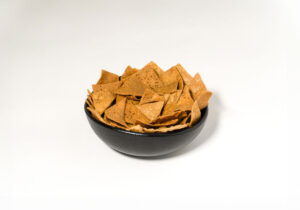Unleashing Millets’ Potential for PCOS: A Guide for Women
Polycystic Ovary Syndrome (PCOS), a prevalent hormonal condition, affects numerous women during their reproductive years. While a definitive cure remains elusive, various lifestyle modifications can help manage the symptoms. Among such changes, integrating millets, nutrient-dense grains, into the diet has shown significant benefits for women dealing with PCOS. This article delves into how millets can aid in controlling PCOS symptoms and enhancing overall health.

Understanding PCOS PCOS triggers an overproduction of androgens, or male hormones, in the ovaries. This leads to irregular periods, acne, weight gain, and difficulties in conceiving. Although the exact cause is still unknown, insulin resistance is considered a primary contributing factor, where the body’s cells become less receptive to insulin, leading to elevated glucose levels in the blood.
The Role of Millets Widely grown small-seeded grasses, millets, are a staple food in many parts of the world. They are gluten-free and have a low glycemic index, making them an excellent choice for those dealing with PCOS. Here are some ways millets can aid in managing PCOS symptoms:
Glycemic Index: Millets, known for their low glycemic index (GI), are absorbed slowly by the body and do not cause a sudden spike in blood sugar levels. This can help regulate insulin levels and mitigate the risk of developing type 2 diabetes, a common complication of PCOS.
Fiber Content: High in fiber, millets help regulate blood sugar levels and improve digestion. By slowing down the absorption of glucose in the bloodstream, they help maintain stable blood sugar levels, reducing PCOS symptoms like bloating and constipation. Furthermore, fiber aids in weight management by inducing a feeling of fullness.
Nutrient Composition: Millets are packed with essential nutrients, including iron and magnesium, crucial for maintaining hormonal balance and overall health. They are also a good source of zinc, important for immune function, wound healing, and hormonal balance.
Gluten-Free: Being naturally gluten-free, millets are suitable for women with PCOS who may have gluten intolerance or celiac disease. They allow for the inclusion of various nutritious foods in the diet without the concern of gluten intake.
Integrating Millets into Your Diet
With several types of millets, including foxtail, finger, and pearl millets available, there are many ways to incorporate them into your diet:
Use millet flour to create rotis, dosas, and other gluten-free baked goods.
Substitute millet for rice in dishes like biryani, pulao, and fried rice.
Prepare millet porridge for breakfast, topped with fruits, nuts, and seeds.
Add millets to salads and soups for extra nutrients.
At Kiru, we are dedicated to tapping into the potential of millets and making their benefits accessible to all, particularly women managing PCOS. Incorporating these grains into your diet can help improve overall health and manage PCOS symptoms sustainably. Our commitment to quality is reflected in our range of all-natural, gluten-free snacks that are both tasty and nutritious. So, if you’re exploring the potential of millets for health and wellbeing, we’ve got you covered.





